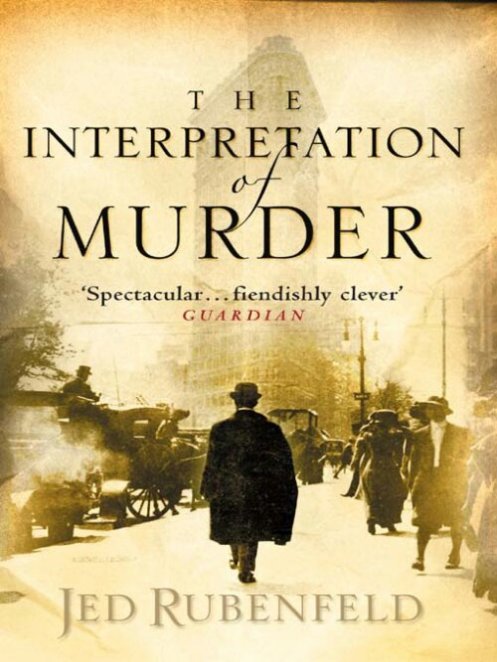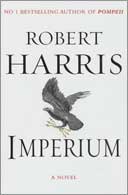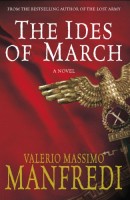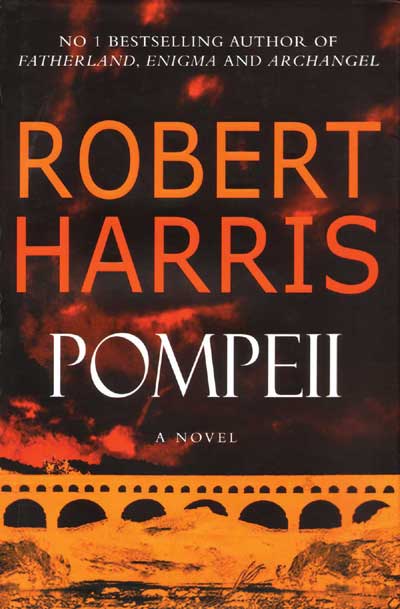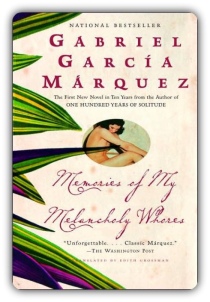In the previous post I reviewed one of my favourite writers, Georges Simenon, and the astounding book that is called Memoirs of Maigret in which he walks through the days of his famous detective, and supposedly the latter corrects the errors that have populated Simenon’s novels about the real cases solved by Maigret. In fact, I pointed out that one of the the most entertaining features of Simenon’s writing style is the gems hidden between the lines, in the way a detective inquiry develops, particularly through the eyes and mind of the famous policier, who needs to understand the reasons and the meanings behind some gestures, who needs to understand the criminal’s mind before to be able to catch him. He has to think like him, to see like him, then he can follow his steps and get him.
It is not by chance, then, that the next novel I would like to present here talks about psychology and murder, and involves the paramount expert of psychology, the far famed Sigmund Freud himself. The novel’s title intrigues straight away, for it paraphrases the title of Freud’s most famous book: “the Interpretation of Dreams”, a book that marked a cornerstone of the psychoanalysis theory. In fact, the author is far from being a psychologist; Jed Rubenfeld is a lawyer, and for some reason he took a deep interest in Freud up to the point of writing a full novel with the doctor as a main character.
The novel develops onto a background setting that picks up from real historical events. The main events take place around New York in 1909, at the time when Sigmund Freund, Carl Jung and Sandor Ferenczi -that is, the founder of psychoanalysis and his school – arrived in the USA. The journey happened for real, Freud was invited to hold some lectures in the United States and to receive an honorary prize; however, a journey that was supposed to be of pleasure and a great triumph for the Austrian turned out to be a dramatic event in the mind of Freud, who spoke of America in unusual defiant terms afterwards. Rubenfeld explanation is ingenious, connecting the uneasiness to a series of events that happen while Stratham Younger, the protagonist and hero of the book, American disciple of Freud, tries to solve the inexplicable events related to some murders.
Freud and Younger need to work hard on a girl, Miss Acton, who is unable to speak after being found tied to a chandelier the night after a murder occurs. She has to be cured using psychoanalisys to regain speech and be able to actually testify on what has happened and how. In the process, Freud and Younger enter in a deep debate on the usefulness of the Austrian doctor’s practices and the importance of the hidden sexual meanings to Freud theory and to the real understanding of what’s behind the surface, what impedes to be or to become something.
In the book, moreover, there is a hint and description of the famous fallout between Jung and Freud; in reality, it happened later in the years, but it helps definitely to make up for the relative mystery of Freud’s disgust with America. However, the book is extremely well written, and the plot keeps the reader up with suspense until the last chapter. The reader gets a detailed insight of psychoanalysis practices and theories, and most of the speeches are directly taken from the real writings and letters of Freud and his affiliates.
I believe that Jed Rubenfeld is one of the finest authors our days; The Interpretation of Murder and its following The Death Instinct are among the finest thrillers written in the past years. Moreover, the historical reconstruction is of the most accurate kind, making Rubenfeld a great inventor of fiction and a wonderful psychoanalysis passionate, who is able to transmit a great deal of his abilities to the reader. In the end, that is the great quality of a great writer: being able to invent a world and a story that challenges the reader mentally, stimulating his fantasy and the passions that move his heart and his soul. Even more, that can dig into the reader’s mind and prevent prevision, surprising him with fine twists and interesting riddles; a writer must be able to surprise and empathize with his reader. Rubenfeld does it wonderfully, which makes him a recommended read, definitely.
Have you read him? what do you think?

